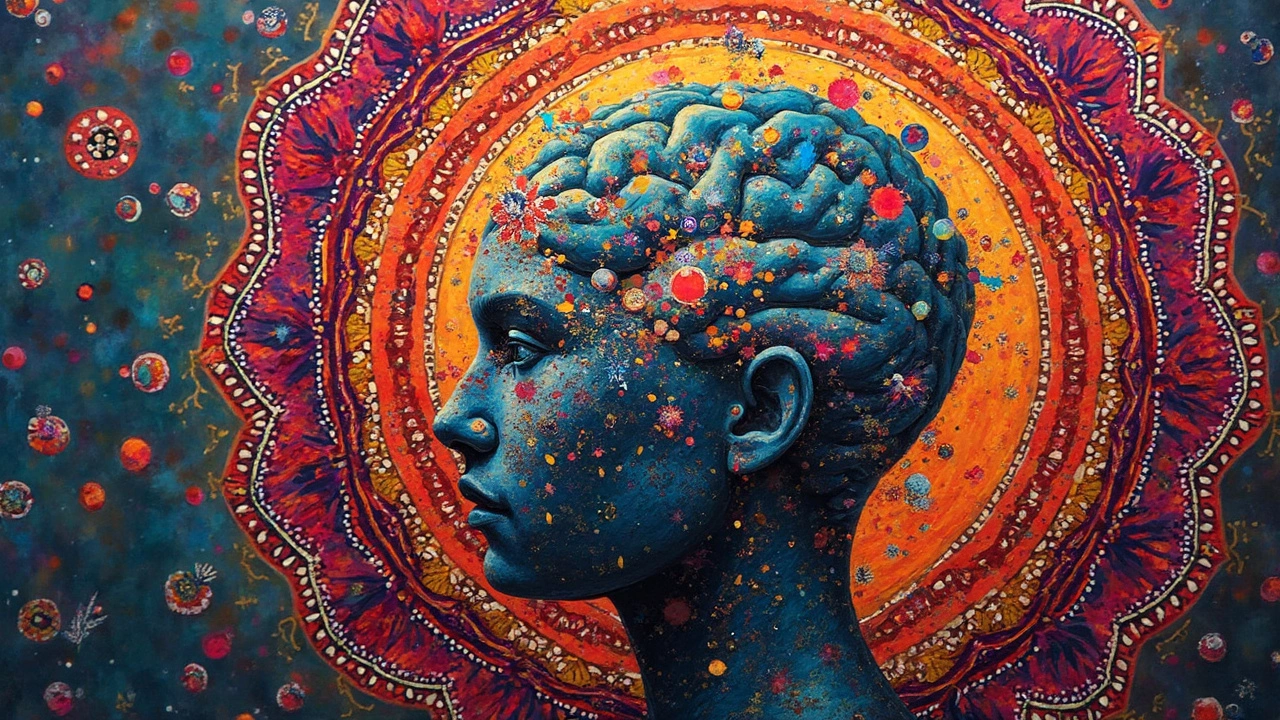So, adult ADHD—it’s more than just drifting off mid-conversation or losing your keys for the hundredth time. While people often crack jokes about being 'so ADHD,' living with it as an adult can seriously shake up your life in unexpected ways. Imagine your brain constantly in turbo mode, juggling a dozen things while racing through emotions like you're on a rollercoaster with no brakes.
Let's get real: the challenges of ADHD go way beyond a messy desk or missed appointments. It's about dealing with impulsivity that can mess up your finances or emotional storms that can derail your relationships. This isn't just about being quirky or forgetful; it's navigating a world that isn’t always built for the way ADHD minds work.
Unpacking these challenges can be both enlightening and validating. Whether it's understanding those career setbacks or managing emotional whirlwinds, knowing you aren't alone can make a world of difference. And hey, there are ways to turn this chaos into something beautifully manageable. Stick around as we dive into the darker sides of ADHD that don't often get the spotlight and explore some down-to-earth tips to cope and thrive.
- The Hidden Impacts on Daily Life
- Emotional Rollercoaster
- Strained Relationships
- Career Challenges
- Navigating the Darkness
The Hidden Impacts on Daily Life
When you're dealing with ADHD as an adult, everyday stuff isn't always a walk in the park. Imagine trying to focus on a work call while your brain is like a TV with a hundred different channels all blaring at once. Sounds wild? That's the reality for many people out there.
Simple things like organizing tasks can turn into a major hassle. It’s not that folks with ADHD don’t try; their brains are just wired differently. This might mean finding it hard to start or finish tasks. Or getting caught up in activities that others might call 'unproductive.' And let’s be honest, that can be super frustrating.
Financial missteps are another thing that might not be on everyone's radar. Trouble with planning and impulse control sometimes leads to late bills, overdrafts, and those stingy credit scores. No one teaches you how to magically fix this, but knowing you’re not alone is a good first step.
Here’s some food for thought—UK researchers found that adults with ADHD are about three times more likely to change jobs frequently. That’s not about lack of talent but often about the mismatch between a typical job structure and the way their brains buzz.
| ADHD Impact | Experience Level |
|---|---|
| Difficulty focusing | High |
| Challenges in organizing | Moderate to High |
| Financial struggles | Moderate |
| Job changes | High |
But hey, don't let this dim the light. There are strategies to get a grip on these impacts. For instance, using sticky notes or digital tools like Trello can help break tasks into bite-sized pieces. Setting alarms for bills or finding a finance buddy can keep money matters in check. Small tweaks can make a big difference.
So, while these hidden impacts might seem daunting, remember there's a way through. It’s about finding what works for you in this neurotypical world.
Emotional Rollercoaster
Ever felt like your emotions are set on a high-speed merry-go-round? That's what it's like for many adults with ADHD. One minute you're on top of the world, and the next, everything feels like it's falling apart. It's a constant up-and-down that can be exhausting, both mentally and physically.
The emotional rollercoaster can be triggered by things that others might shrug off. Maybe it's a critical comment at work or a plan that suddenly changes. For someone with adult ADHD, these can set off a chain reaction of intense feelings. This isn't just moodiness; it's a legit part of how ADHD affects the brain's regulation of emotions.
Science tells us that the areas of the brain responsible for regulating emotions are often less active in individuals with ADHD. This can lead to heightened emotional responses, making everything feel like a big deal. It's not just about having a bad day; it's about having frequent emotional upheavals that can make daily life challenging. Dealing with this can strain your mental health, making therapy a helpful tool to balance out this emotional turbulence.
Here are some practical tips to help manage this whirlwind:
- Mindfulness and Meditation: Simple breathing exercises or guided meditations can help ground your racing thoughts and emotions. These practices can teach you to pause and reflect before reacting, giving you a moment of calm in the storm.
- Therapy: Working with a therapist can provide strategies tailored to your specific needs. They can help you understand triggers and develop coping mechanisms to manage intense emotions effectively.
- Routine: Establishing a consistent daily routine can offer a sense of stability. Knowing what to expect can reduce anxiety and emotional unrest.
The emotional rollercoaster isn't just a personal battle. It can affect relationships and work, too. If you're feeling like you're constantly riding these waves, reaching out for help isn't just okay—it's necessary. You're not alone, and with the right resources, you can find not only balance but also resilience in the challenges of living with emotional swings.

Strained Relationships
When it comes to adult ADHD, relationships can take quite the beating. It's not just romantic partners who feel the heat—it's friends, family, and even coworkers. Why? Well, the impulsivity and emotional rollercoaster that come with ADHD often lead to misunderstandings and conflicts.
One common issue is communication. Adults with ADHD might interrupt conversations or struggle to listen fully, making others feel unheard or unimportant. This can obviously lead to tension. Imagine sharing something deep and personal, only to be cut off halfway by a suddenly hyperenthusiastic rant about something unrelated. Frustrating, right?
Emotions in ADHD can be like a storm, coming in fast and strong. An innocent comment might be taken the wrong way, leading to hurt feelings or arguments. If you’re the partner or friend, this constant walking on eggshells can be emotionally exhausting.
Trust issues can also arise. Forgetting commitments or showing up late might seem like no big deal, but to someone counting on you, it can feel like betrayal. You know when you're halfway through binge-watching a show only to realize you've missed hanging out with your best mate who’s been waiting for hours? They're bound to be upset or feel less important.
| Common ADHD Challenges in Relationships | Impact |
|---|---|
| Impulsivity | Misunderstandings and conflicts |
| Poor time management | Broken commitments, trust issues |
| Emotional instability | Increased arguments, emotional strain |
So, how can you manage these hurdles? It starts with awareness and communication. Talk openly with your partner about how ADHD affects you both. Knowing it's not intentional can alleviate some pressure.
- Set reminders for important dates—there's no shame in using tech to keep you on track.
- Practice active listening—repeat back what the other person says to show you’re engaged.
- Have honest chats about feelings. It's okay to admit when things are overwhelming.
- Seek couples therapy if needed. A professional can offer strategies tailored to your specific circumstances.
Taking these steps can transform strained relationships into supportive and understanding connections, where ADHD quirks are just part of the journey.
Career Challenges
Navigating the workplace when you have ADHD can feel like you're playing a game on expert mode. Unlike just forgetting an occasional deadline, adults with ADHD may struggle with organization, time management, and even staying engaged in meetings that others find straightforward.
Imagine you're juggling not one, but dozens of tasks, and they are all yelling for your attention at the same time. This is what every day can feel like. For some, it shows up as procrastination—putting off tasks until they're screaming urgent. For others, it’s tuning out in meetings despite the best efforts to focus. Research has shown that about 50% of adults with ADHD also grapple with anxiety, which can make work stress feel overwhelming.
Working in a dynamic and fast-paced setting might sound ideal, but the opposite is often true. The constant barrage of information can lead to burnout much faster. However, there are ways to create a supportive work environment. Start by breaking down tasks into smaller, manageable chunks. Using timers to maintain focus can be a game-changer, along with prioritizing tasks every morning.
Establishing a clear line of communication with supervisors about your ADHD can also help. It's not about making excuses but creating an understanding that might allow for flexible work hours or a quieter workspace.
- Break down tasks into small parts.
- Use productivity apps to manage and track time effectively.
- Communicate openly with your employer or manager about your needs.
- Take regular breaks to recharge your focus.
If you’re finding it hard to keep up, connecting with a mental health professional who specializes in ADHD might provide strategies tailored to your unique work style. It's not just about managing symptoms but doing so in a way that doesn't compromise your work quality or well-being.

Navigating the Darkness
Living with ADHD as an adult can feel like you're driving a car on a foggy night with no GPS. Everything seems unclear and overwhelming. But here's the good news: whether you're dealing with emotional outbursts or career challenges, there are ways to regain control and steer towards a clearer path.
First thing's first, understanding your triggers is crucial. What's causing the whirlwind of emotions or impulses? Whether it's certain situations, stress, or anxiety, pinpointing the why can help address the root of the problem.
Of course, routine is your new best friend. Establishing a daily structure can prevent you from spiraling. Try breaking tasks into smaller, manageable chunks and using alarms or reminders to keep on track.
- Mindfulness: Incorporate practices like meditation or yoga. These can ground your racing thoughts and help improve focus.
- Exercise: Physical activities are a known booster for mental clarity. A quick workout can be a magic reset button for your brain.
- Therapy: Cognitive-behavioral therapy (CBT) is often recommended. It's not just talk; it's about practical ways to change habits and thought patterns.
And let's not underestimate the power of community. Finding support groups or people who get what you're going through can be incredibly reassuring. You're not a lone warrior in this fight.
Check out this simple stat: Adults with ADHD are two times more likely to experience anxiety. So managing ADHD isn't just about tackling symptoms; it's often about addressing related issues too.
| Challenge | What Helps |
|---|---|
| Impulsivity | Mindfulness, structured routines |
| Emotional Outbursts | Therapy, support groups |
| Focus Issues | Exercise, clear task lists |
No approach is one-size-fits-all, but experimenting to find what aligns with your life can make a big difference. By understanding these tools and strategies, you're better equipped to face the darkness with a flashlight, not just fumble around in it.





